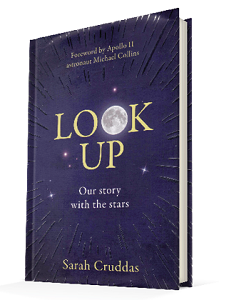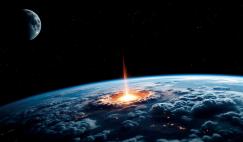It is said that everyone has a book in them, and I believe this is one of life’s truisms. Of course, that doesn’t mean that all those internal books should be ‘allowed out’, but that’s another matter. This is not the first book from space journalist Sarah Cruddas, but it is her ‘coming out’ book, a semi-autobiographical piece on the importance of space, both for her and humankind. In fact, she goes so far as to suggest that, “the exploration of space is the most significant thing we will ever do as a species”.
The book begins with her childhood fascination for space, spending paper-round money on Glowstars to make constellations on her bedroom ceiling and an early academic career that culminated in study for an astrophysics degree. Then, by her own admission, she “got sidetracked”, trained as a journalist and accepted a job as a BBC ‘weather girl’. Her crafting of a career in space from that point will be of interest to many young people, women in particular, because it shows that hard work and perseverance can bring rewards.
However, anyone who has dipped into space history or worked in the general field will not learn much from this book. It regurgitates common knowledge of the ‘space race’, Apollo, Space Shuttle and NewSpace, complete with the usual clichés. This is disappointing from someone who thinks of herself as a “global thought leader”.
The presentation is breezy, newsy and competently written but is devoid of any serious commentary or analysis (apart from opinions on how important it all is). The book has 250 pages printed in a large font (which reduces the need for content) and strangely, considering its presumed audience, it is completely unillustrated. Although the book includes a useful index, whether or not the target market would ever use it is open to question. I doubt that anyone would read such a book more than once, but it is something that space-aware parents might like to buy for their offspring.











